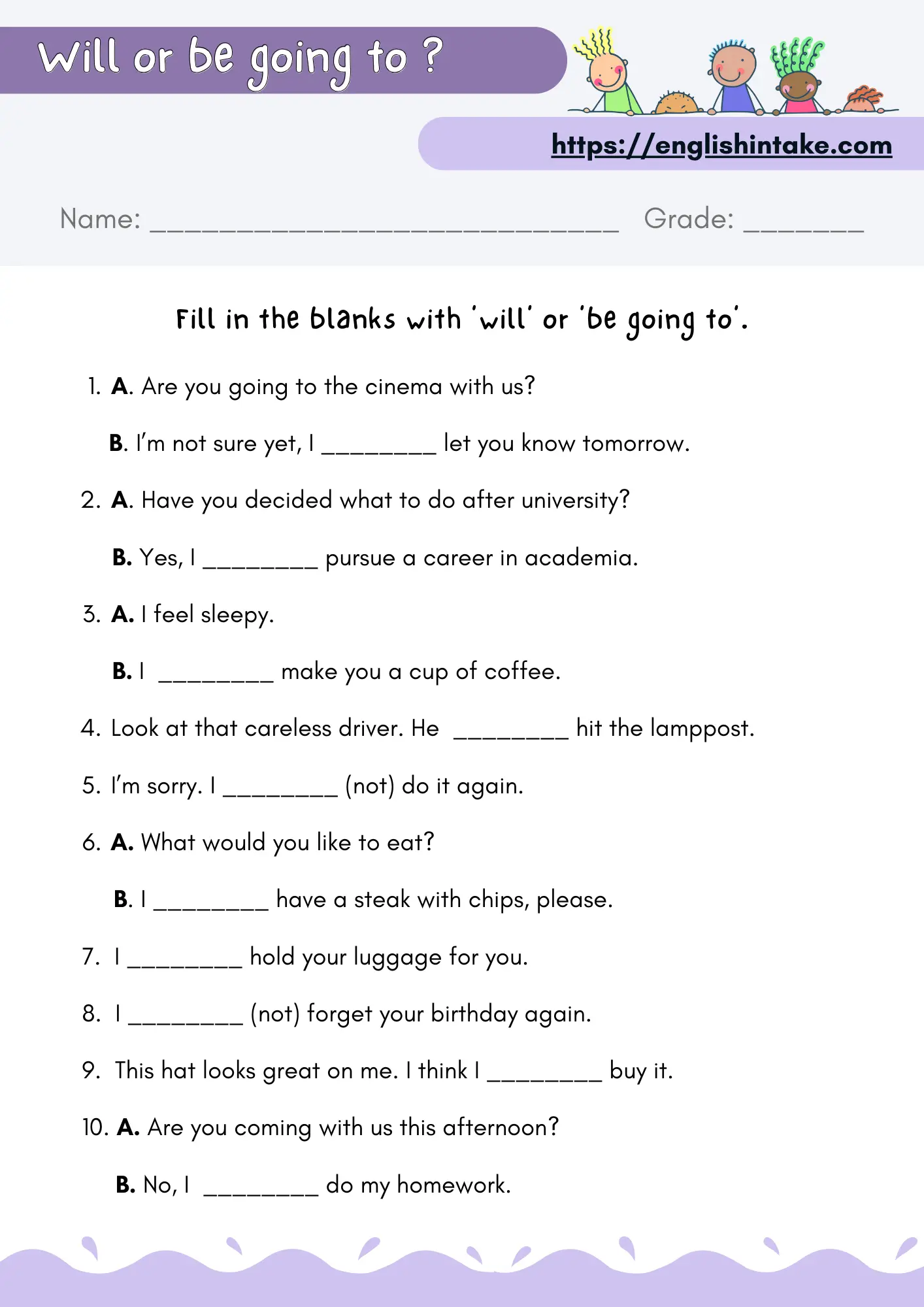These 'will and be going to' exercises focus on distinguishing between spontaneous decisions, planned actions, personal predictions, evidence-based predictions, scheduled events, and future clauses using time expressions like when and as soon as.
Exercise 1: will or be going to?
Read each situation carefully and choose the correct verb form to complete each sentence.
1. A. We’re out of sugar.
B. Don’t worry, I ______ to the shop now.
2. A. We’re out of sugar.
B. I know. I ______ to buy some after this film ends.
3. I think she ______ the test. She is very clever.
4. Look at those clouds! It ______ soon.
5. The train ______ at 7:15.
6. I ______ Lucy at the café at 6 a.m.
7. I’ll call you when the meeting ______
8. That bag looks heavy. I ______ it for you.
9. We ______ Grandma this weekend. It’s all arranged.
10. Drink some water as soon as you ______ the race.
Exercise 2: Quick decisions or planned actions?
Choose 'will' or the correct form of 'be going to' to complete each sentence.
1. I feel cold. I _____ close the window.
2. I _____ visit my cousins next summer. I bought the plane ticket a month ago.
3. He is terminally ill. He _____ die soon.
4. My wife is pregnant. We _____ have a boy in a few months.
5. It’s too dark here. I _____ turn on the light.
6. I forgot to close the door. I _____ go back home.
7. We _____ have a party on Friday. Would you like to come?
8. I’m hungry. I _____ buy something to eat.
9. I have decided to learn Spanish. I _____ take evening classes.
10. We have decided to divorce. We _____ tell the children this week.
PDF worksheet
This worksheet focuses on the difference between 'will' and 'be going to' for expressing future actions. It includes 15 sentences and dialogue-based exercises to distinguish between spontaneous decisions, promises, predictions based on opinion, planned actions, and predictions based on present evidence.

Answers to the worksheet
1. A. Are you going to the cinema with us?
B. I’m not sure yet, I’ll let you know tomorrow. (spontaneous decision)
2. A. Have you decided what to do after university?
B. Yes, I’m going to pursue a career in academia. (planned actions)
3. A. I feel sleepy.
B. I’ll make you a cup of coffee. (spontaneous decision)
4. Look at that careless driver. He is going to hit the lamppost. (present evidence)
5. I’m sorry. I won’t do it again. (promise)
6. A. What would you like to eat?
B. I’ll have a steak with chips, please. (spontaneous decision)
7. I’ll hold your luggage for you. (offer)
8. I won’t forget your birthday again. (promise)
9. This hat looks great on me. I think I’ll buy it. (spontaneous decision)
10. A. Are you coming with us this afternoon?
B. No, I’m going to do my homework. (planned actions)
